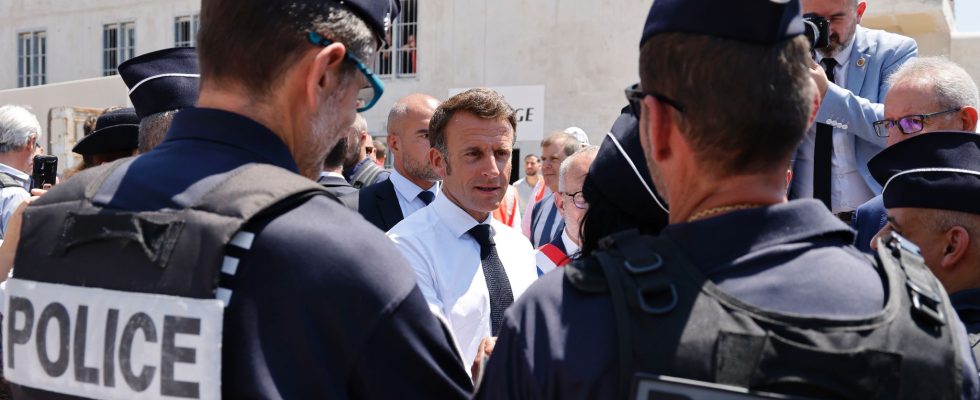Macron left side. On June 9, 2020, the funeral of Georges Floyd, who has become a symbol of racism and police violence around the world, takes place in Houston. SOS Racisme calls for a rally in Paris in tribute to this man who succumbed after a policeman kept his knee on his neck for nearly nine minutes. In the preceding days, a singular meeting takes place at the Elysée Palace. The office of the Head of State is a reflection of the “at the same time” dear to the boss, with different or even opposing sensibilities. It comes to light at this moment. The event is of an international nature, and if the president mingled with the procession?, advances a collaborator. Emmanuel Macron could at least receive a delegation, offers another adviser.
It gets seriously stuck on the other side of the table with the president’s sovereign advisers. The United States is not France, it would be a question of not confusing everything. And then, above all, the police and the executive look at each other at the time like earthenware dogs, we must not add to it. The President will remain in his office.
Macron right side. On October 4, 2022, it is like in the cinema. At his table, top cops, Robert Broussard, Christian Lambert, Ange Mancini, Frédéric Péchenard, Charles Pellegrini, Jo Querry. The anecdotes fall as in Gravelotte, they are as many feats of arms. And it is one of these police officers who, on leaving, will blow about the president: “Part of him is on the right, part of him is on the left.”
The Nanterre tragedy once again forced Emmanuel Macron into an impossible – perhaps also inevitable – balancing act. The Head of State, by describing Wednesday as “inexplicable and inexcusable” the gesture of the police officer responsible for the death of Nahel outside of any legal procedure, tried to avoid the conflagration, with the result that we knows: he was not heard by those to whom he was speaking, and he offended those who heard him, namely the police. On Friday, he ordered additional means after three nights of rioting. Jean-Luc Mélenchon and the LFI deputies believe they have proof that “the police kill” and are calling for a reform from top to bottom, while the police union Alliance publishes a threatening press release: “Today the police are in combat because we We are at war. Tomorrow we will be in resistance and the government will have to be aware of it.” In Marseille, two off-duty police officers are recognized and beaten up. The police institution is faltering.
Emmanuel Macron knows little about this social body like no other. It remains forever marked by the crisis of yellow vests, which in December 2018 raised a taboo question: and if the forces of order escaped political power? During the first five-year term, the police obtained a salary increase that exceeded their expectations – which is still rare. “Without the police, you were alone facing the street, are you aware of that?” Former director general of the National Police Frédéric Péchenard once remarked to him.
But the Macron of the left is never slow to reappear, especially in certain contexts, especially in the face of certain interlocutors. The almost caricatural example occurs on December 4, 2020, when the Head of State is the guest of the program Brut, while demonstrations take place every Saturday against an article of a bill which restricts the possibility of film the police. “I can tell you” there is police violence “if it pleases you that I say it, we are not going to play neither yes nor no”, loose the president.
Emmanuel Macron immediately understands the consequences of his expression. The next day, he sent a Telegram message to the police unionist Yves Lefebvre: “You can give me a point, obviously my words do not pass.” And this is how in a few hours the Beauvau of security was born, a term suggested by the trade unionist – and which is not without irony since the host of Place Beauvau, Gérald Darmanin, is not at all in the loop.
At the beginning of the second five-year term, the LOPMI was voted, the orientation and programming law of the Ministry of the Interior which provides for 15 billion euros by 2027, with the recruitment of 8,500 police officers and gendarmes over five years, the transformation digital department or investments in cybersecurity. Emmanuel Macron promulgates the law on January 24, 2023. The real thing is when you bump into each other: the police crisis breaks out six months later.
